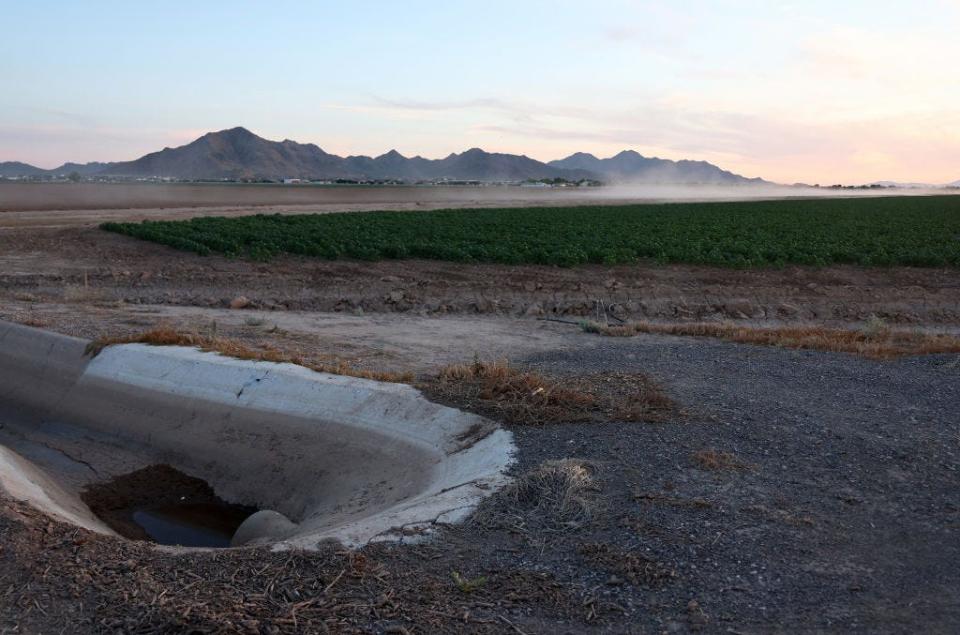Arizona will never solve its water issues until it changes this
Arizona has diverse voices at its water negotiating table, and that’s a good thing.
We get better policy when broad swaths of water users — including tribes and others that in past years have had muted voices — are actively involved.
But the number of cooks in the kitchen, coupled with a political climate where water policy is being increasingly used as a partisan bludgeon, means we can’t keep negotiating in the same old ways.
Negotiations left too many in the dark
Consider this year, where major water bills were resurrected with changes in the waning hours of the legislative session, leaving basically no time for public comment or vetting.
Bills that, even just days before, were considered by many to be DOA.
A few people in back rooms made those changes, leaving everyone else feeling rushed and completely blindsided.
This is not how we should be making wide-reaching water policy.
Especially given the kind of concessions that must be made to finally move wide-reaching policy over the finish line.
Arizona has real water issues to solve

People are disappointed with how months of effort fell apart, and rightly so.
We’re draining much of rural Arizona, with no ground rules on water use.
Several groundwater basins are in dire straits, and pleas are growing ever more frantic for lawmakers to create a middle-ground regulatory framework — something more flexible than what we have in current law to help farmers, the primary water users in these basins, conserve.
We’ve also stopped allowing housing subdivisions to grow on groundwater in metro Phoenix, now that the water is largely spoken for.
Homebuilders and some city leaders are decrying the economic havoc that could wreak on the state and are pleading for more leeway to resume this growth.
These issues aren’t going away, and the lack of progress to address them is doubly frustrating because this session had something others haven’t — critical mass to get something done.
We were so close but didn't get there
Farmers pressed for rural regulation in ways they hadn’t before. Many made significant concessions over the session on how that regulation should work, and who should be entrusted to make it.
Meanwhile, there was wide support — at least, in theory — to help cities like Queen Creek and Buckeye earn designations that prove they have a 100-year water supply, and to resume homebuilding on farmland in areas where it was likely to bolster supplies.
This water budget cut: Could become a long-term mistake
We were close, so close, on making major breakthroughs and passing policies that could do a world of good for Arizona’s limited and precious groundwater — the state’s largest source of water and the only one for many people.
Yet a bill to set up rural regulation in three of the state’s most troubled rural basins narrowly died at the last minute.
And the governor vetoed the largest and most game-changing component of the urban effort, saying she supported the idea but that it needed more work.
What we need to keep players at the table
Major players, to their credit, say they are still willing to make a deal.
But that won’t be the case for long unless we take a page from the 2019 Drought Contingency Plan, which spelled out how the state would absorb painful Colorado River water cuts.
Small groups met privately with key negotiators to help work through issues by a well-defined deadline. That gave them the space (and grace) to throw out creative solutions or, in some sessions, light their hair on fire about proposed provisions.
Those meetings were balanced by regular public sessions where everyone could get updates and hold each other accountable for what had been agreed to privately.
Arizona needs both if we’re ever going to convince people to take the deal they don’t love but can live with.
And, yes, that’s what we’re facing now that this many competing interests are jockeying for a limited water supply — not a perfect deal, but one we can live with.
The only way forward in this reality is to keep a wide swath of voices in the loop and feeling heard.
Reach Allhands at joanna.allhands@arizonarepublic.com. On X, formerly Twitter: @joannaallhands.
If you love this content (or love to hate it – hey, I won't judge), why not subscribe to get more?
This article originally appeared on Arizona Republic: Arizona will never solve its water issues if it sticks to this path

